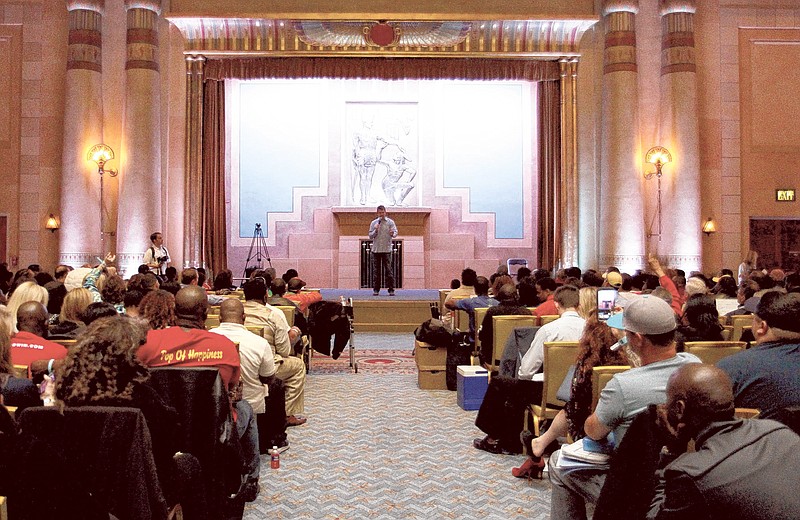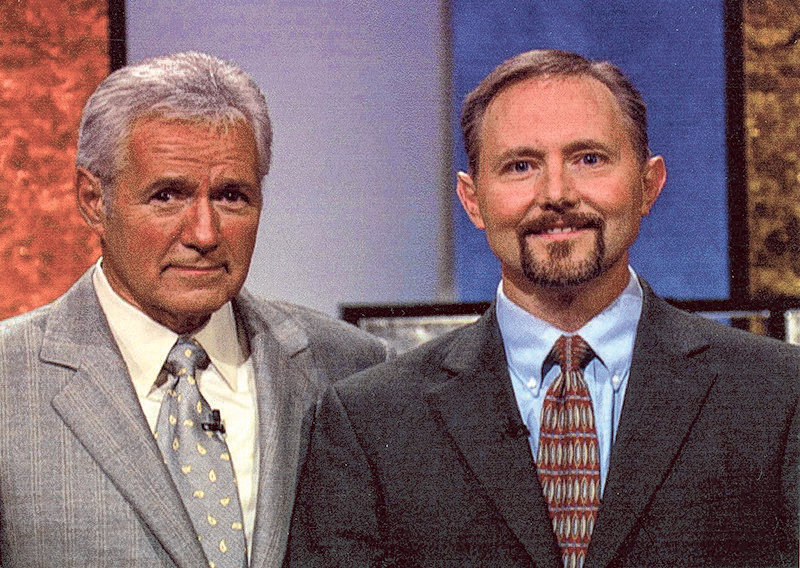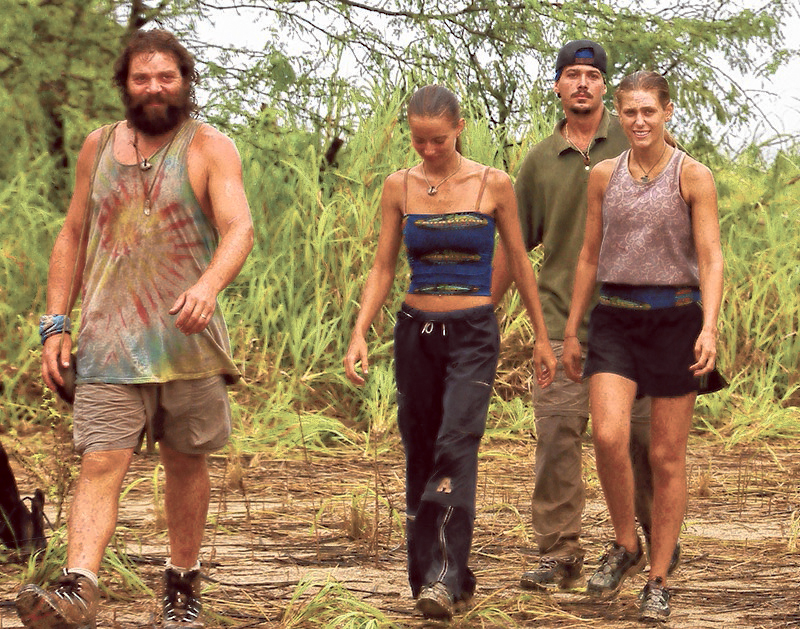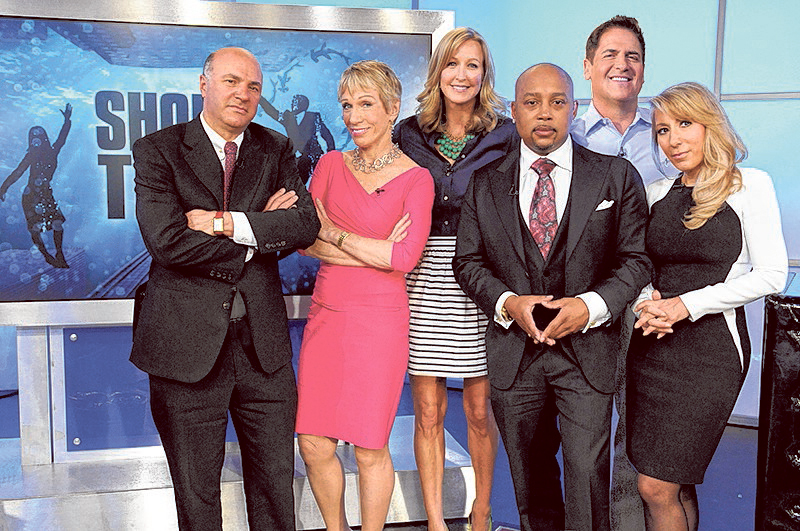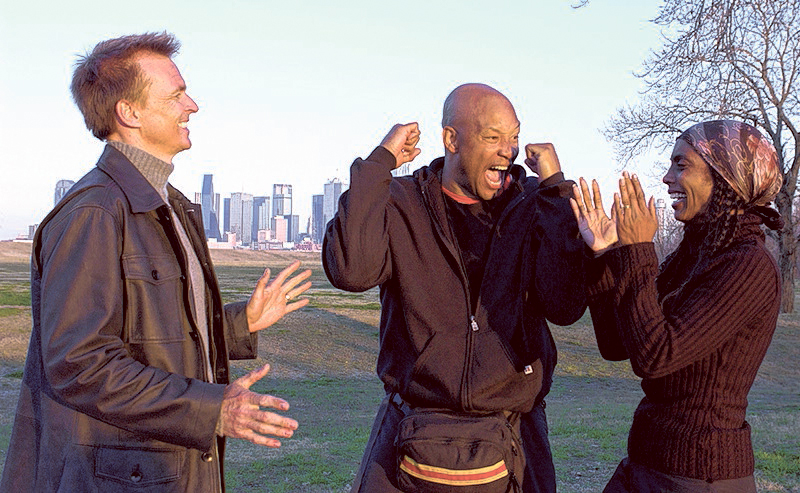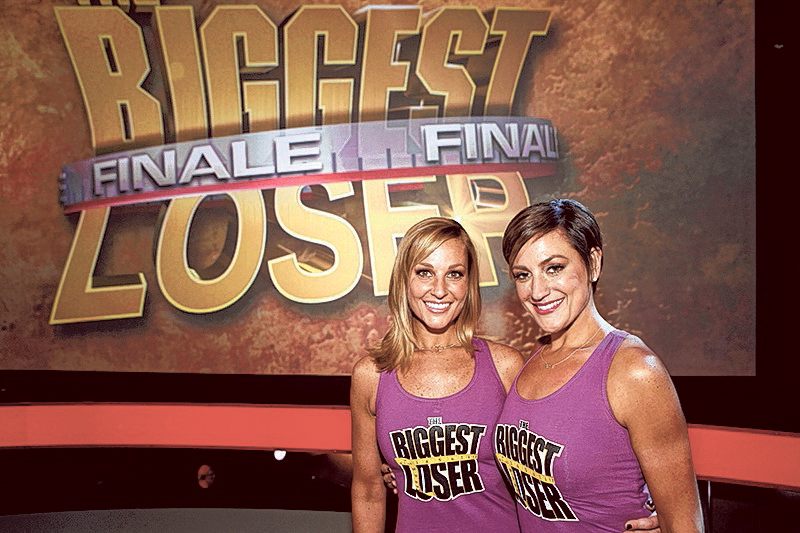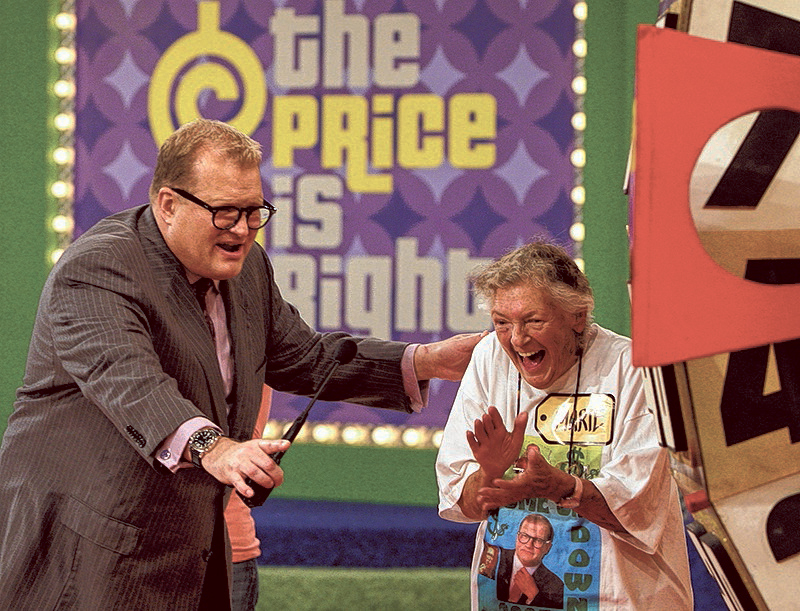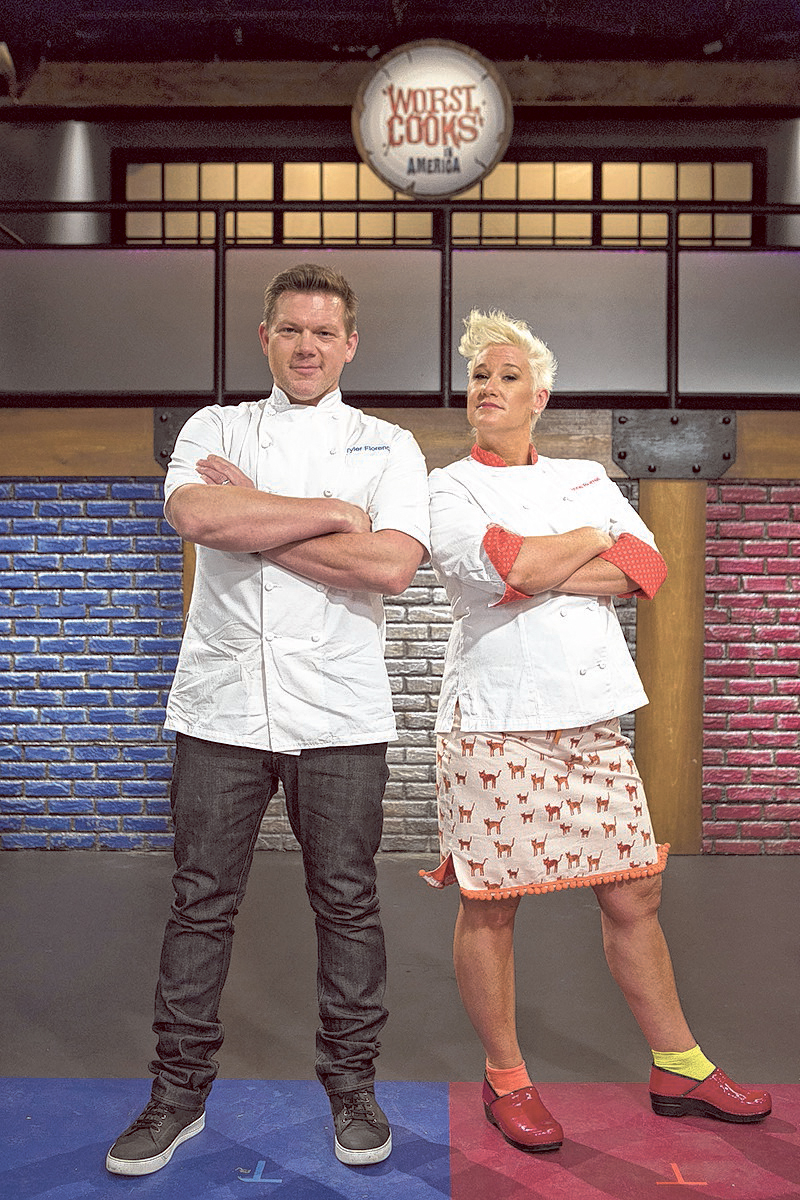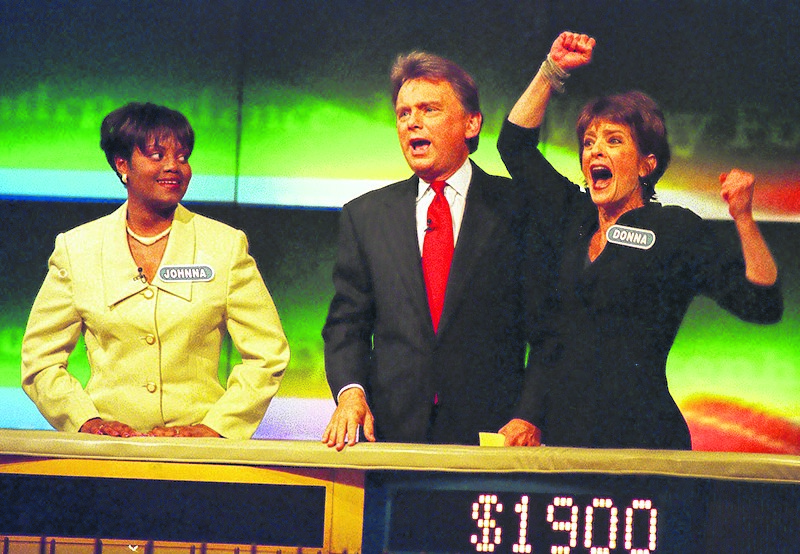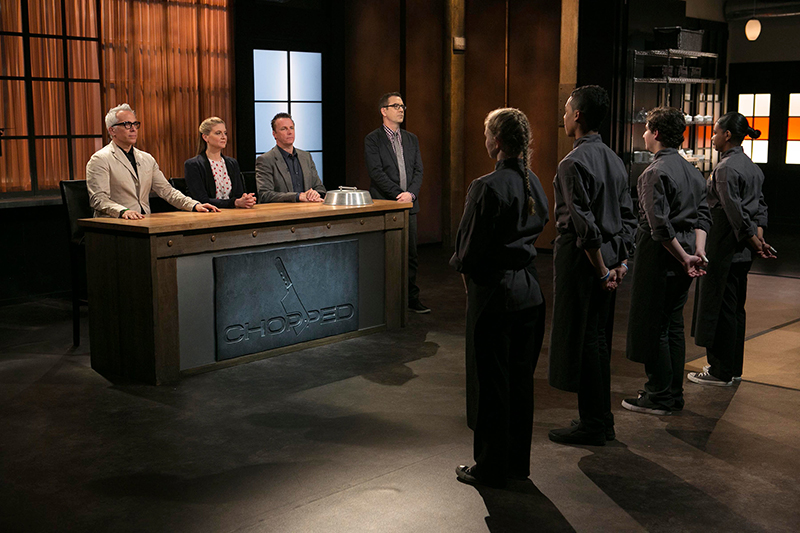'Jeopardy'
* About the show: First aired in 1964. Hosted by Alex Trebek. Three contestants provide questions to the given answers and compete in six categories in two rounds per show, plus a final question. Prize money varies. * Network/website: Syndicated; jeopardy.com/beacontestant/contestantfaqs * Contestant requirements: Applicants must be over 18 (except for the Teen Tournament, College Championship and Kids' Week). To qualify for an "in-person" audition, you must have passed the qualifying test online or at an authorized "Jeopardy" event. If you pass and are invited to an in-person audition, you will take another 50-question written test. Your application will be judged on your audition test score as well as your online score. Everyone at the audition also plays a short mock version of "Jeopardy," three contestants at a time.
'Survivor'
* About the show: First aired in 2000. Hosted by Jeff Probst. Sixteen men and women, divided into two teams, vote their fellow contestants one-by-one off the remote location where they are staying. Prize: $1 million. * Network/website: CBS; cbssurvivorcasting.com * Contestant requirements: Must be at least 18. (in Alabama and Nebraska it's 19; in Mississippi and Washington, D.C., it's 21.) You must be a U.S. citizen with valid passport. Online applications and a video submission are required. Preliminary phone interviews are done December through February. The show receives tens of thousands of applications every year, but show officials want "quality" contestants, so they often choose models and actors as contestants. Background checks are done. When choosing contestants, show officials generally drop them into one of three categories: Sex, Conflict and Comedy, meaning their personality or looks fit one of those themes.
'Shark Tank'
* About the show: First aired in 2009. Hosts are a panel of potential investors called "sharks," including Mark Cuban (owner of the NBA's Dallas Mavericks), Robert Herjavec (Canadian technology whiz), Daymond John (CEO of FUBU clothing company), Barbara Corcoran (New York real estate mogul) and Kevin O'Leary (Canadian entrepreneur). Each week, contestants seeking investment money pitch their business or product ideas. Prize money varies depending on how much the sharks want to invest. * Network/website: ABC; abc.go.com/shows/shark-tank/apply * Contestant requirements: There are two ways to apply: by email (address on website above) or at open casting calls held around the country. At a casting call, you'll give a 1-minute pitch of your business/product/idea to a casting team member; to be eligible for the calls, you must have a completed an application packet downloaded from the website. Open call venues and dates are listed on the website.
'The Amazing Race'
* About the show: First aired in 2001. Hosted by Phil Keoghan. Eleven pairs of competitors -- often couples -- travel the world, completing in various challenges. Prize: $1 million. * Network/website: CBS; theamazingracecasting.com * Contestant requirements: Applicants must be 21 and a U.S. citizen with a valid passport. Apply online. A photo (closeup of you and your partner) and video are required. In the video, applicants should "focus on relationship positives and negatives. We love banter!!" You must be physically and mentally fit and pass a background check. If chosen as a semi-finalist, you must take physical and psychological exams. Seasons are filmed between May and July. Those selected this year will start filming May 2016; casting calls go out four to six months before filming begins.
'The Biggest Loser'
* About the show: First aired in 2004. Hosted by Alison Sweeney. Contestants work with fitness trainers to see who can lose the most weight during the show's season. Prize: $250,000. * Network/website: NBC; biggestlosercasting.com * Contestant requirements: People with at least 100 pounds to lose are encouraged to apply. You must complete a nine-page online application with personal details about your life and a full-body photo. You also must make a video and send it in. Casting calls are held in various cities; check "The Biggest Loser" website for details on when and where. If you are being considered, you will fill out more forms, including one that asks you about crimes you've committed; contestants that go further also may have Skype interviews before being brought in for live auditions.
'The Price is Right'
* About the show: First aired in 1956 and the longest-running game show in TV history. Hosted by Drew Carey. The show is centered on guessing the price of merchandise to win cash and prizes. Prize: Merchandise, vehicles, vacations and/or money. * Network/website: CBS;www.priceisrightinfo.com * Contestant requirements: Tickets to the show are free; contestants are selected from the studio audience. For tickets, visit priceisrightinfo.com. While in line at the studio -- 300 people can fit into the TV studio where the show is filmed -- a producer will come out and interview everyone. He looks for people with lots of energy. Unique outfits may help, but personality is key. And showing that you're a dedicated fan of "The Price Is Right" is a big turn-on.
'The Worst Cooks in America'
* About the show: First aired in 2010. Hosted by mentors Tyler Florence and Anne Burrell, who lead teams of recruits who can't cook at all through seven weeks of culinary boot camp. Prize: $25,000. * Network/website: Food Network; theconlincompany.com/now-casting/worst-cooks-in-america * Contestant requirements: Online application. Sample questions: "In a paragraph or less, tell us what your primary motivation is for being on the show. What is your secondary motivation?" You must send a headshot and a full-body photo. Applicants must be at least 18 years old, a U.S. citizen and in excellent physical and mental health. Those being considered will do a phone interview with a casting agent. if you continue, there will be several live auditions. Open casting calls are held prior to each season; the schedule is on the show's website.
'Wheel of Fortune'
* About the show: First aired in 1975. Hosted by Pat Sajak. Three contestants guess hidden phrases or words one letter at a time. Prize money varies. * Network/website: Syndicated; wheeloffortune.com/be-a-contestant * Contestant requirements: Online applications are open to teenagers and adults, and a video submission required. For the video: smile, be yourself, tell why you'd be a good contestant and give an interesting story about yourself, don't ramble and keep it all under 1 minute. You can also do a live audition if the show's Wheelmobile comes to your area, check the website for times and cities. In the Wheelmobile, hopefuls fill out an application and play a speeded-up round of "Wheel of Fortune"; the best candidates are invited to a final audition, but all applications are part of a drawing for a spot in the final auditions. Usually more than 1 million people apply per year but only 600 are selected.
'Chopped'
* About the show: First aired in 2009. Hosted by Ted Allen. Four chefs face off against one another, preparing a three-course meal in 30 minutes using ingredients provided by the show. Prize: $10,000. * Network/website: Food Network; choppedcasting.com * Contestant requirements: Online application. You must be a professional chef. (Exceptions for shows that feature home cooks, teens, military cooks, teachers and other categories.) You must send a resume and pass a background check. Tell your personal story, discuss your cooking style, favorite dishes, hobbies and answer questions such as: "What is something that we wouldn't know about you by looking at you?" If selected as a possible contestant, you must do a live audition to demonstrate your cooking skills on different tasks. And yes, if you're on the show, you will have no idea what the mystery ingredients are until you open the basket. You will, however, get a list of the ingredients in the show's pantry.
So one evening in 2007, Harmon, the public defender in Tennessee's 12th Judicial District, sat down at his computer and took the show's online application test. Even so, he says he wasn't as much interested in being on the show as in seeing how well he could do on the test.
"We watch the show at my house, and one night they said if you'd like to take the online test to be a contestant on the show, go to jeopardy.com," says Harmon, 52, who lives in Dayton, Tenn. "I decided to do it out of curiosity."
His curiosity paid off. Six weeks later, he was contacted to audition in Atlanta, the next step in becoming a contestant. About 10 months after that, he was standing behind one of the three podiums on the "Jeopardy" stage, throwing answers back at host Alex Trebek.
He made it through two games and walked away with a $46,600.
"I was happy," he says. "It paid for my kids' college."
Whether it's to lose weight, learn to cook, test our personal moxie or show the world just how smart we are, millions of Americans try every year to become a contestant on a game show or reality TV. The bottom line? They're all competing, whether on a game show or reality TV, for a grand prize -- usually money.
And, for the most part, these shows have the same guidelines for becoming a contestant -- fill out an online application, send a video of yourself, try to get to the next level of a phone interview or live audition. Then wait. And wait. If you don't make it, they don't tell you. You just don't get contacted again.
For "Jeopardy," there are 50 questions in the online test with questions popping up one right after the other. You have a few seconds to answer -- or not answer -- each one. At the end, instead of getting a final score, you get the message: "Thank you for playing."
That's it, Harmon says. "I found out they never give the score," he says.
After finishing the online test, Harmon gave it no further thought until six weeks later when he received an email from Sony (which owns "Jeopardy"), informing him that he "made the cut"; if he wanted to continue, he needed to attend an upcoming audition in Atlanta.
"You went in, signed up, they took a Polaroid shot of you and gave you another test," he says. "There were about 30 people taking the test. Then they called three of us at a time to the front to play a mock game of 'Jeopardy.' They told us that we might be contacted within a year and, if we weren't contacted within a year, we could try again by taking the test online."
Nine months later, while attending a legal conference in Chattanooga, he received a voice mail from a "Jeopardy" representative telling him he had qualified to be a contestant. Three weeks later, at his own expense, he was in Los Angeles, at a "Jeopardy" orientation.
"They told us what to expect and then took us to makeup," he says, noting that he was told to wear the same type of clothing he would wear on the show. "Then we actually went into the studio, walked up to the podium to get a feel for it.
"All the potential contestants are in the crowd together, watching a live taping of the show. As soon as the show goes off, they draw the names of the next contestants. There's just a 15-minute break between tapings."
Harmon, who is comfortable in a courtroom, says he was terrified when his name was called to go on stage.
"It's just different," he says. "Being in a courtroom is my job. When I hear, 'All rise,' I'm on autopilot. It's what I do. But this, on 'Jeopardy,' was out of my comfort zone."
His nerves, fortunately, didn't interfere with his thought process. He won the first game and placed second in the next.
Contact Karen Nazor Hill at khill@timesfree press.com or call 423-757-6396.
